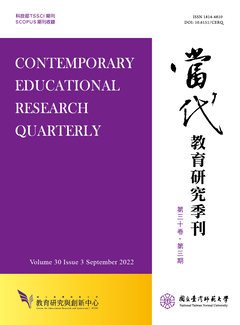

As children serve as the future leaders of the nation and the hope of the country, their physical and mental health and well-being are crucial to the economic prosperity and social progress of the country. Numerous studies have demonstrated that infancy and early childhood are crucial stages for long-term success, where care exposure and environment influence children's development and lifelong learning, while education and intervention are most effective during this stage. In view of this, over the past two decades, advanced countries in Europe and the U.S. have invested significant human and financial resources to collectively establish a large database for long-term tracking of early childhood development for the purpose of understanding developmental histories, care environments, and the relationship between the two in their countries as a reference for national policy formulation.
Supported by the Ministry of Science and Technology (MOST), in 2016, Taiwan began to establish the Kid in Taiwan: National Longitudinal Study of Child Development and Care (KIT), a longitudinal study that collects data on the health, cognitive, language, social, emotional, and physical development of children in the 3-month and 36-month age groups in Taiwan, as well as information on their family and child care environment and experiences.
At present, data of the first and second waves of the 3-month age group (3 and 6 months olds) and the first wave of the 36-month age group (36 months olds) are available in English and Chinese on the SRDA Survey Research Data Archive website of Academia Sinica.
Evidence-based data collected through the KIT can be utilized to investigate the development of Taiwan's children in various domains, their environments and experiences (e.g., family, child care, policy, culture, etc.), as well as how these environments and experiences affect child development. In this regard, the Contemporary Educational Research Quarterly welcomes scholars and experts who are involved in early childhood development and education to submit articles based on the KIT for the purpose of proposing policies and practical suggestions that are beneficial to early childhood development in Taiwan. The following issues are welcomed (but not limited to those listed below):
1. The current conditions and developments in the health, language, cognitive, social, emotional, and physical-motor development of Taiwanese children, as well as the current conditions and developments in the family and childcare environment.
2. The relationship between the current social environment in Taiwan (e.g., child reduction, two-income families, cross-generational parenting, and digital technology) and the health, language, cognitive, social, emotional, and physical-motor development of Taiwanese children.
3. The relationship between Chinese parents' parenting beliefs and behaviors on the development of Taiwanese children.
4. The relationship between different childcare experiences (e.g., age of childcare, type of childcare, duration of childcare, quality of childcare, etc.) on the development of children.
5. The relationships between family and child care environment on the development of Taiwanese children.
6. The relationship between family and child care environment and child development of children from different socio-economic, ethnic and cultural backgrounds.
7. The relationship between the current child care policies (e.g., parental leave, child care subsidy for babysitters, child care subsidy for families whose parents are not employed, child care subsidy for disadvantaged families, etc.) and the development of Taiwanese children.
8. The quality and professional development of Taiwan's early childhood education faculty.

This work is licensed under a Creative Commons Attribution-NonCommercial 3.0 Taiwan License.
Center for Educational Research and Innovation, National Tawain Normal University
162, Ho-Ping East Rd, Sec. 1, Taipei, Taiwan | Tel:+886-2-7749-3670 | E-mail: cerecerq@gmail.com
CERI | NTNU | E-mail Alerts | Open Journal System
© 2014 CERI-NTNU
